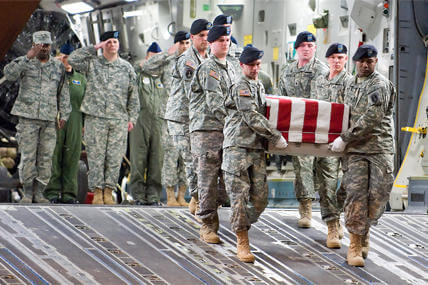The spike in “insider attacks,” with Afghan police and soldiers killing more than 50 U.S. and coalition troops this year, has impacted domestic support for the war more than any other combat reality, a top military officer in Afghanistan said Wednesday.
“The problem with the insider attacks is that they strike at the heart of our resolve,” said Australian Brig. Gen. Robert Noble, deputy chief of staff at International Security Assistance Force headquarters. “It’s a pretty tough thing to stop.”
Noble said the Taliban is trying to erode the trust built up between the U.S. and Afghanistan forces.
“We understand that and so do our soldiers,” he said. “The enemy’s got a tough task in trying to drive a wedge between us.”
Noble spoke to reporters at the Pentagon from Kabul about the insider attacks that have killed 51 coalition troops this year, and at least 109 since 2007. The incidents coupled with rising tensions over a You Tube video insulting Islam led ISAF to order contacts between U.S. and allied troops with the Afghan National Security Forces scaled back, at least temporarily.
Back at home, the families of victims of the insider attacks find it difficult to comprehend that “you’ve been shot by those you came to help,” Noble said.
ISAF commanders have started to develop a profile of an Afghan who might be prone to carry out an insider attack, Noble said. Investigators have focused on Afghan soldiers and police officers when they go on leave. They have studied what influences they might come under in their home villages.
When the Afghan soldiers or police return to base, “we’ve got to make sure when they get back that their heads are on straight,” Noble said.
He never mentioned Vietnam, but the same argument was made repeatedly in daily news briefings from Saigon. Military leaders told reporters that “we’re winning the war on the ground, but losing it at home.”
“The Taliban obviously know that and that’s what they’re trying to do” in seeking to shape public opinion in the U.S. and among the allies, said Lawrence Korb, a military analyst at the Center for American Progress who served as a Navy flyer in Vietnam.






























